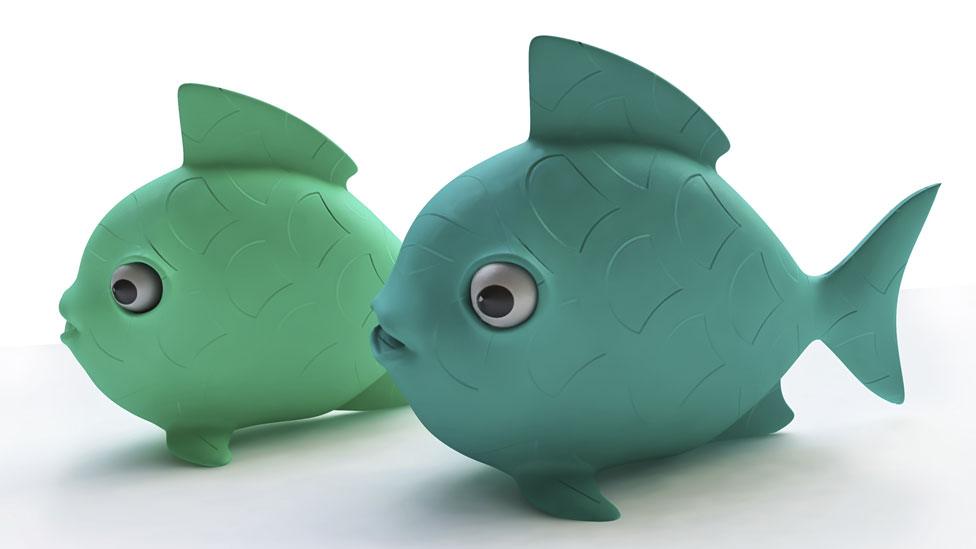Mussels contaminated with plastic particles
- Published
- comments
Kent mussels were tested to see if plastic could end up in the food chain
Almost two thirds of mussels in the sea around Kent are contaminated with plastic particles, research has shown.
Mussel samples were collected from four of Kent's beaches by BBC's Inside Out investigation team.
Dr Stephanie Wright from King's College London found on average 60% of the shellfish contained micro-plastic.
Environmental scientists are growing concerned over the repercussions of plastics entering the food chain and being consumed by humans.
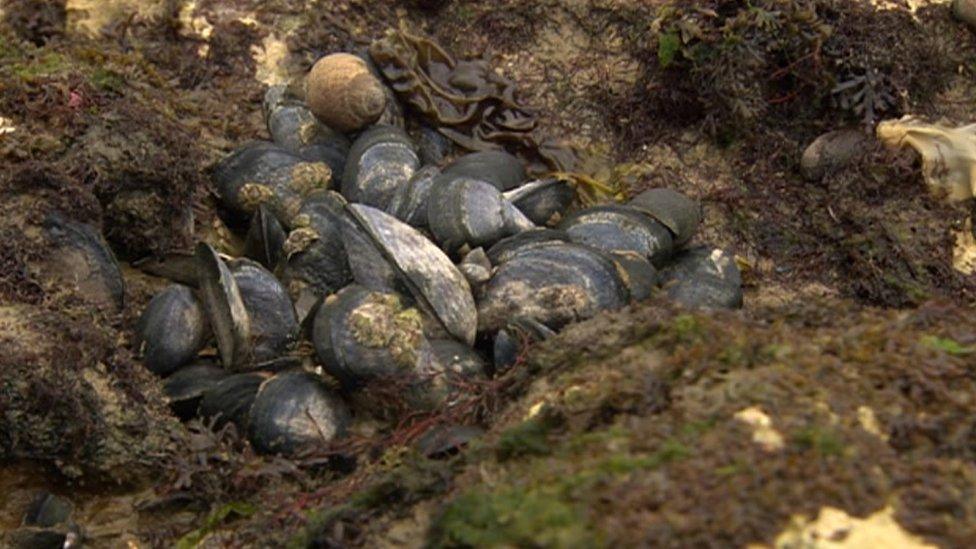
Tests showed about 80% of mussels collected at Ramsgate were contaminated
In Ramsgate, 80% of the creatures were contaminated, while in Herne Bay it was 40%. No site was free of plastic.
Rob Dyer, from the Kent and Essex Association of Inshore Fisheries and Conservation Authority (IFCA), said the results were shocking and the plastic getting into mussel tissue could cause the animals stress and reduce their ability to reproduce.
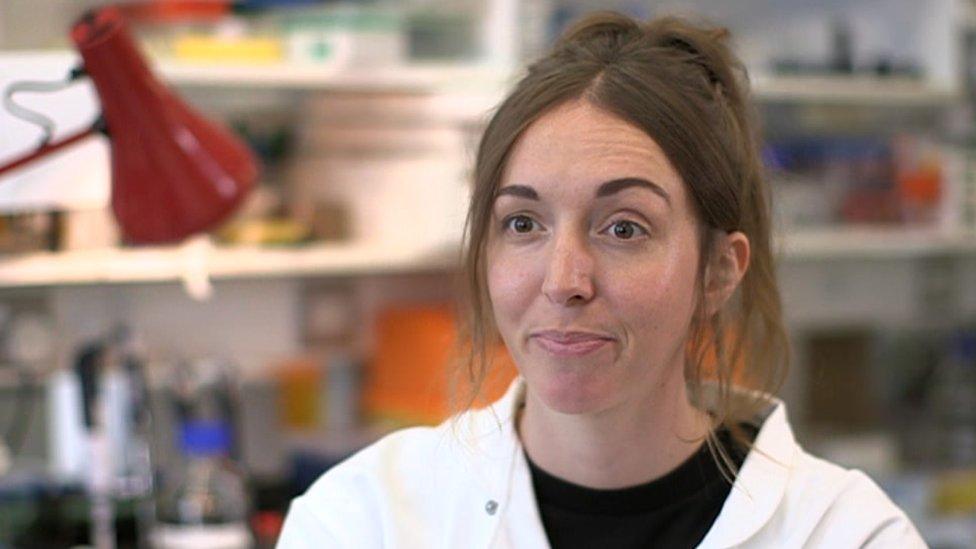
Dr Stephanie Wright at Kings College London conducted the study
It is estimated that between five and 13 million tonnes of plastic is dumped in the sea every year, external - 10,000-27,000 tonnes in the UK.
While the mussels tested were not from farms or intended to directly enter the food chain for human consumption, Dr Wright said the impact on humans is still a "big unknown".
"Other animals will be eating those animals with plastics, which puts the particles in [our] food chain.
"Particles could pass through the gut and not cause any effect, or it could release contaminants, and these are chemicals with known human health effects," she said.
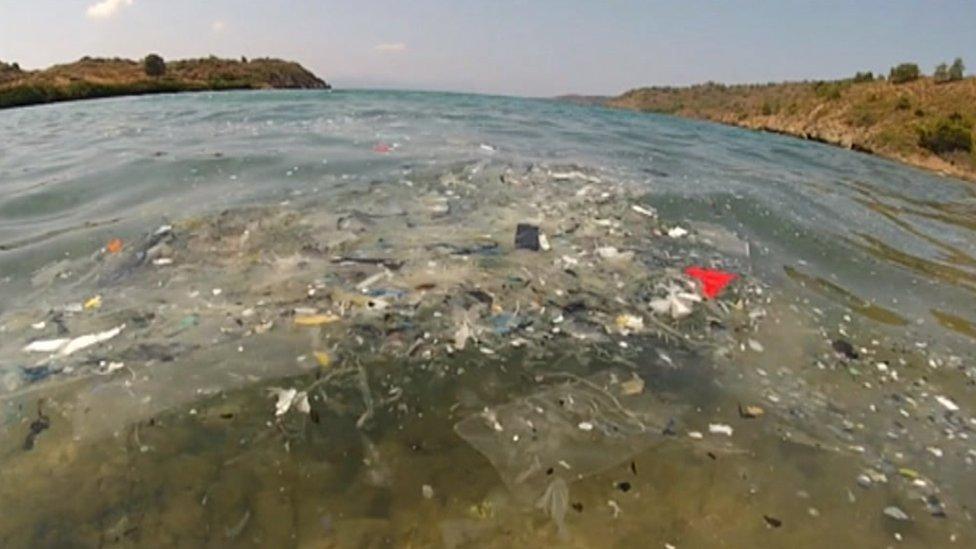
It is estimated that between 10,000 to 27,000 tonnes of plastic is dumped in UK waters annually
Mr Dyer said based on the initial findings he was looking to commission further research including the effect on cockles in the Thames Estuary.
"I'm interested in seeing if, like the mussels, they are picking up any plastic contamination, because they are harvested and processed directly for human consumption," he said.
See more on this story on Inside Out, on BBC One South East on Monday 9 October at 19:30 BST, and later on the BBC iPlayer.
- Published9 October 2017
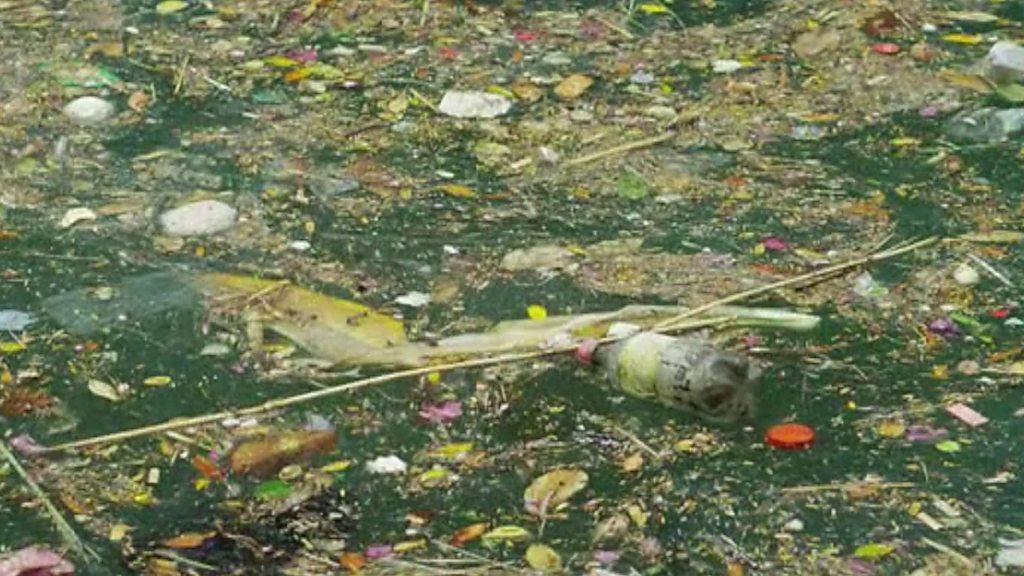
- Published15 February 2016
